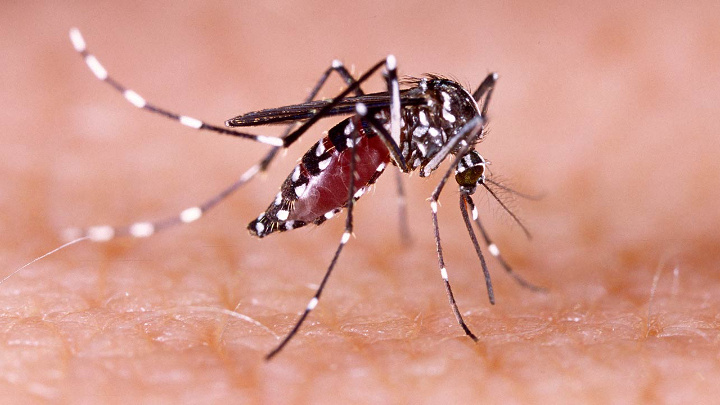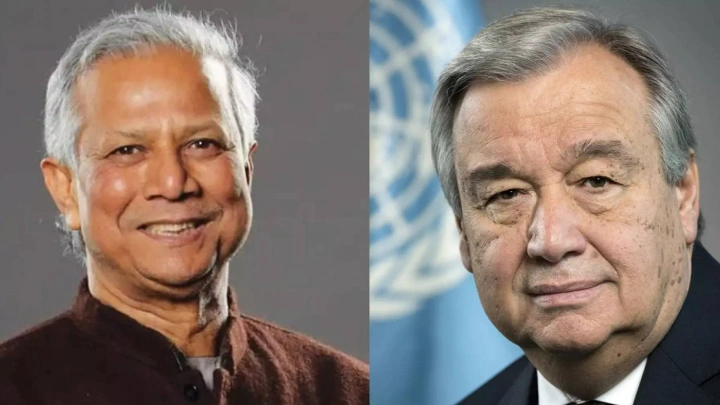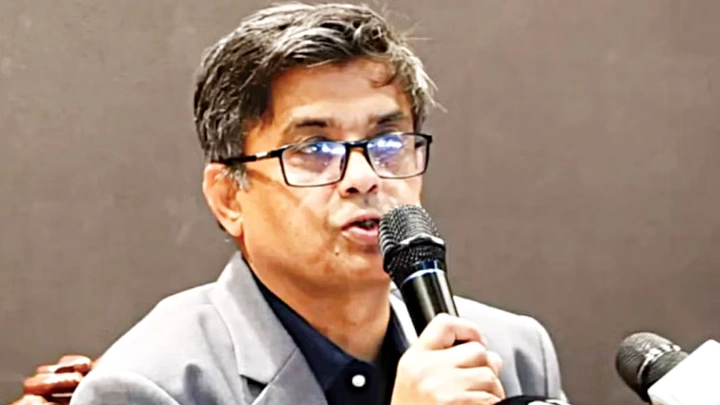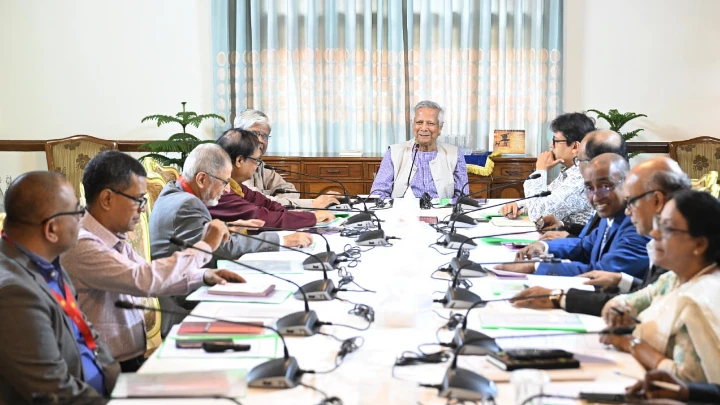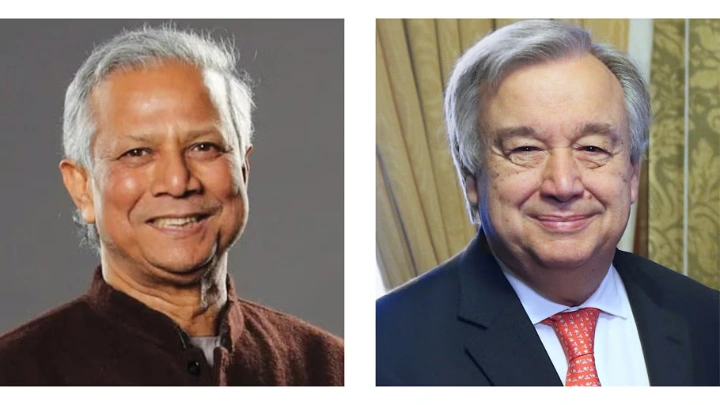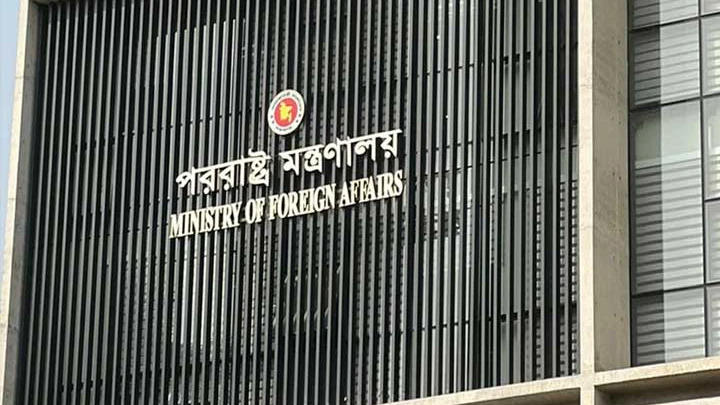The dengue situation deteriorates day by day
Shining BD Desk || Shining BD
The number of dengue cases and fatalities has reached alarming levels, raising questions about the country's dengue condition.
The Directorate General of Health Services (DGHS) will host a news conference today at its Mohakhali headquarters to provide an update on the situation and the government's efforts to manage it in light of the country's deteriorating dengue scenario.
“If the breeding grounds of the vector are not destroyed immediately, the situation may take a serious turn anytime,” Dr Md Nazmul Islam, Director (Disease Control) of DGHS, told the Daily Sun.
According to the DGHS, dengue situation has alarmingly deteriorated from August to October this year. This year, 6,425 dengue patients were hospitalised and 20 died in 12 days of October while 9,911 patients were reported and 34 died in September and 3,521 patients hospitalised and 11 patients died in August.
“The country’s dengue situation is worrying this year than the previous year. In October last year, the dengue cases were in downward while this year the dengue situation is worsening in October,” Dr Ekramul Haque, Programme Manager (malaria & Aedes transmitted disease) of DGHS, told the Daily Sun.
He said the number of deaths of children in the deadly disease is a matter of concern in the country this year.
The DGHS data said 28,429 dengue patients were hospitalised and 105 died in 2021. Of them, 1,207 patients were hospitalised in December last year while 3,567 in November, 5,458 in October, 7,841 in September, 7,698 in August, 2,286 in July, 272 in June, three in April, 13 in March, nine in February, and 32 in January.
The DGHS data said in between January 1 to October 1 this year, so far 11,140 dengue patients were admitted to hospitals in the country. Of them, 44 percent patients were admitted to hospitals in Dhaka South City Corporation area, 40.8 percent in Dhaka North City area and 15.3 percent outside the Dhaka city.
Of the 11,140 dengue patients, 4,450 were female, 6,690 male. Of them, 7,498 were adult and 3,642 were under 18 years. Of the patients, 1,880 were aged one year to 10 years, 2,459 patients were between 11 to 20 years and 3,007 were aged between 21 to 30 years in the country.
Hospital sources said children are highly affected by the dengue this year as a number of children died of dengue this monsoon in the capital. Of them, at least seven children died at Dhaka Shishu Hospital.
The DGHS has found that highest numbers of patients were admitted from Mirpur, Uttara, Mugda, Dhanmondi, Keraniganj, Jatrabari, Rampura, Mohakhali, Basabo, Khilkhet, Khilgaon, Farmgate, Badda, Mohammadpur, Panthapath, Tejgaon, Malibagh, Kamrangirchar, Panthapath and Agargaon areas.
“We are giving information of hotspots of the dengue to the city corporation authorities to carry out the anti-mosquito drive and awareness programme,” Dr Ekramul Haque of the DGHS said.
He further said the government has taken a decision to form a consortium comprising government and non-government organisations to run advocacy programmes to make people aware of the disease.
The DGHS data shows that 647 new dengue patients were hospitalised and one more patient died in the country in the past 24 hours till Wednesday morning. Of them, 415 were admitted to 50 hospitals in Dhaka.
As per the report, 2,481 dengue patients are undergoing treatment in hospitals across the country currently. Of them, 1,812 are in 50 hospitals in Dhaka city.
Dr ASM Alamgir, ex-Principal Scientific Officer at IEDCR, said the influence of new serotype of dengue virus Den 4 is one of the main reasons behind increasing the number of fatality from the disease this year.
Dr Alamgir, also a virologist, suggested carrying out anti-mosquito drive round the year in the entire country at a time to destroy the Aedes breeding grounds to control dengue. “Combined effort of all stake holders and social awareness are a must to check the dengue transmission,” he added.
The primary vectors that transmit the disease are Aedes aegypti mosquitoes and, to a lesser extent, Aedes albopictus. Dengue usually grows in clear and stagnant water. Even a small quantity of water, as little as 40 ml, can grow mosquitoes leading to such deadly diseases.
"People have to keep their homes and surroundings clean. At the same time, if anyone suffers from any symptom of dengue-like fever, they should consult a doctor immediately," Prof Dr Tahmina Shirin, Institute of Epidemiology, Disease Control and Research (IEDCR), told the Daily Sun.
Talking to the Daily Sun, Dr Ekramul Haque, Programme Manager (malaria & Aedes transmitted disease) of the DGHS, said a monsoon survey conducted from July 11-22 has identified places in 13 wards of Dhaka north and 14 wards of Dhaka south city corporations as high-risk zone for dengue.
Mentioning that usually August to October is the peak season for dengue, he said the intermittent rain this year is one of the reasons behind increasing number of patients in September and October.
However, the health ministry and the LGRD ministry have taken various initiatives, including carrying out anti-mosquito drives, to control the vectors, sources said.
Dhaka south and Dhaka north city corporation sources said they are also conducting different anti-mosquito drives at different places in the cities.
“We have been conducting campaigns and running anti-mosquito drives regularly,” Dr Fazle Shamsul Kabir, chief health officer (additional responsibilities) of DSCC.
Shining BD

